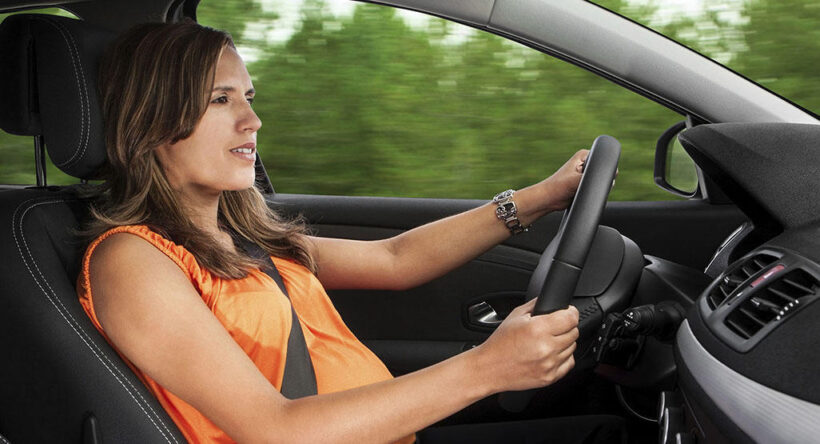Fear is a normal part of life; we all experience it. It is a natural human emotion and we often feel fear whenever we feel unsure and unsafe in certain situations. But what if your fear was driven by a traumatic event, such as a car accident? Whether the accident was big or small is immaterial. Going through an upsetting experience like that can change you and how you see the world.
On top of possible injuries, it’s a normal after-effect for many to develop anxiety following a car crash. They feel less confident in their driving skills. Or sometimes, the mere thought of being behind the wheel is too strong that they get overwhelmed. It’s an unpleasant feeling that can affect your day-to-day life, but there are ways to manage your fears and anxieties.
For instance, you can consult a lawyer or a psychologist to seek professional help. You can read more here to understand how and why a lawyer is going to be of big help, as you deal with post-car crash trauma.
Healing isn’t linear. You need to be patient and allow yourself time to process what happened. It doesn’t happen overnight, but eventually, you’ll gain back the confidence to go back on the road and drive again.
With that said, here are eight effective steps to help you combat driving anxiety after experiencing a car accident.
1. Tell Yourself You’re Ready

Telling yourself that you’re ready over and over again, can help you believe that you are indeed ready to try again.
The mind is a very powerful tool in helping you overcome your anxiety. This means that you can train your mind to believe that you are ready to jump on the driver’s seat and start driving again. Feeding it with optimism can help build up your confidence again. But if you continue entertaining negative thoughts and keep being skeptical about your ability to drive, then this will show too.
Our thoughts can be a powerful weapon against anything life may throw at us. Use your mind to empower yourself.
2. Listen To Music

Listening to loud music while driving is not advisable, as this could be a safety hazard. But if the volume is low and you know it won’t affect your concentration, putting on music may actually help relieve any anxious thoughts that you may have.
Not only can music take your mind off things that could trigger your anxiety, but it can also influence your mood while driving.
You can prepare a playlist of feel-good music, which you can listen to during those first few days of being back on the road again. It can be therapeutical and at the same time help you associate the feeling of fun and enjoyment with driving again.
3. Engage Your Senses
Studies suggest that engaging your senses is a good trick in providing relief during anxious and stressful situations.
When an anxiety attack kicks in, what you can do is follow the 3-3-3 Rule. First, you stop for a moment and just look around you. Name three things you can see. Then, listen carefully to the sounds you hear. If you’re listening to music, that itself can calm you. Lastly, move three parts of your body, like your fingers, toes, or shoulders.
This is an effective mental trick that can help you center your mind and bring back focus into what you are doing.
4. Don’t Skip Meals
Eating might be the last thing on your mind when you’re stressed and anxious. But when you’re hitting the road, never be on an empty stomach. The reason behind this is you wouldn’t want to risk yourself getting any dizzier than you may get.
It’s possible for someone who is anxious to feel nauseous or dizzy. But if you’re on an empty stomach, you’re going to find it even harder to focus, as you’ll feel even more nauseous. A full meal isn’t necessary if you don’t have the time for it. Even a piece of banana will do.
5. Breathe In Fresh Air

Perhaps in the middle of your first drive after a car crash incident, you started to feel dizzy and overwhelmed. When this happens, one of the best things you could do is to cool off. Keep the air conditioner temperature cold or roll down your windows.
The cold air on your face and hands may help you feel calmer. This tip can be a big help, especially when you have symptoms like feeling sweaty and lightheaded.
6. Stay Away From Too Much Caffeine
While you might think that coffee can boost focus and productivity, caffeine can also increase feelings of anxiety. Remember that coffee is a stimulant. For some people, one of the direct effects of drinking coffee is having palpitations or feeling even more agitated.
Since you’re still in the process of managing your driving anxiety, you may want to reduce your coffee intake for now. Instead of drinking coffee, water will do. If you’re not a fan of water, calming tea or a healthy breakfast smoothie helps.
7. Practice Breathing Exercises

Driving anxiety can bring panic attacks. This is a scary thing to experience especially when you’re on the road. As terrifying as it may be, all you have to remember is to take small, deep breaths. Focus on breathing in and breathing out. This can help in calming down your thoughts and anxieties.
Breathing evenly can help you redirect your focus back on the wheel and relieve the overwhelming feeling on your chest.
8. Take It Easy On Yourself
Don’t be too hard on yourself. Remember, there’s no rush. Some may experience brief anxiety, while there are those who may go through it for a longer time. Even if you think that your progress is slow, just keep going. Don’t stop driving. Take it one distance at a time and one day at a time. And before you know it, you’ll regain the confidence to drive just like you used to before.
Conclusion
Distress or fear of driving can happen for a number of reasons. But for those who have been involved in a car accident, it’s mostly due to the fear of possibly being in a crash again. It’s normal to feel anxious or afraid to try again, but you shouldn’t let your anxiety take control of your life.
There’s a way to slowly get back on your feet. Take the baby steps such as those listed above to help you start your journey on overcoming your driving anxiety.

